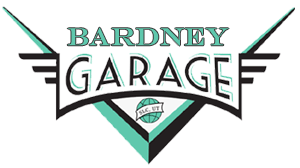
Whether you are building for SEO in Dallas or on a national – or even global- level, it is always important to integrate an SEO plan into the beginning of the development of any website. Some firms may believe that website design is only for the look of the site, however, in reality, an effective website goes much deeper than mere looks. Let us explain.
SEO in a Nutshell
Search engine optimization is a multi-faceted spectrum made up of many components. Although the initial development of the website is crucial to the visibility of the site in search engines, there are a number of elements that are apart from the site as well.
The accumulation of backlinks to the site is an invaluable resource that increases the domain authority of the site.
The truth is that nobody really knows the answers about SEO other than what they have tried and have accomplished as successes in various experiments and trials.
Although search engine giants such as Google and Bing provide hints and best practices they both keep their algorithms and secrets tucked away behind a thick wall of could be’s and should be’s.
The best way to implement a successful SEO campaign is to start with the structure of the website, then build out into the internet a garden of resources that link back to the website in a way that is helpful and meaningful to anybody that stumbles across content.
SEO is much more than slapping a bunch of keywords together on a website and hoping for the best. It takes intent, skill, and a lot of work to bring all of the elements together into one endeavor that produces results and continues to improve as time goes by.
SEO Website Design
One of the first things a web designer should do is learn what the pillar keywords are going to be for the site. Even though pillar keywords will need to be broken down and picked apart to determine which variants of the words will work best for the site, the designer should have an idea of what keywords to work into the fabric of the site.
This is for a really good reason.
In order for the site to even have a chance at appearing in search results for the desired keywords it needs to be equipped with content that talks about those keywords.
Titles, headings, images, content, and everything in between are opportunities for keyword placement.
Keyword Research
The reason why keyword research is so important is so the team can determine which words will work best for the success of the website. If you are an online store that sells purses you have to work up to the point where you actually show up in search results for the word “purses.”
Since the word “purse” is such a broad term it will have a large search volume and a lot of competition. Instead of going for the hardest terms to rank for, it is best to start out with search terms that have less of a competitive edge.
For example, putting the word “purse” into a phrase that might not get as much search volume, but is very easy to rank for will get the pillar keyword “purse” into play in order to build up to where your site dominates for it. Instead of the word “purse”, you would use a whole phrase such as “white purse with lace” in the backlinks.
In the beginning stages of the website’s creation, you will be able to incorporate that phrase and other phrases into landing pages that are geared toward producing results for those keywords.

Building Landing Pages
A landing page is a web page that is created for links to land on. This kind of page can be for literally millions of reasons, but to keep it simple we will stick to the basics.
A landing page can be built for:
- A search engine page result
- An inbound link
- A link from social media
- A link from a paid ad
- A link from an email
- A QR code link from a mailer
For example, if you offer different services on your website you can create a landing page for each one. Each landing page will be optimized for the pillar keyword that is assigned to the page.
Say you offer contracting services on your site. You may offer painting, concrete, roof repair, carpet installation, plumbing…and so on.
Every service offered is a keyword. You could use the home page of the site to discuss all of the keywords, but build landing pages for each one from a tab on the menu…you can also backlink content to each landing page.
As for the service landing pages, you would want to optimize each page for that particular keyword. Here’s an example:
For the roof repair landing page the structure could be something like this:
Title: Professional Roof Repair and Services
Heading 1: Your Trusted Roof Repair Professional
First few words in the first paragraph: We offer professional roof repair services for all of whatever area…
- Use creative H2s with Roof Repair wording
- Add images of workers repairing roofs and use the image alt text areas to incorporate roof repair keywords.
Create between 300 and 1,000 words of high-quality roof repair content on the page that has roof repair terminology interweaved throughout the text, but not repetitious keyword jamming. Instead of writing “roof repair” over and over again use indirect words such as “home structural repair” or “fixing leaky roofs” or “roof maintenance…”
In addition to quality content on the page, it is also important to create a clear, compelling meta-description for users to see when they find your website in search engine results.
Although Google says that meta descriptions do not have any effect on search engine rankings if you look closely at the results in your search queries you will see that the keywords you used in your search are in bold in search results.
In any event, the meta description is what users will see in search results that will either prompt them to click on your site or ignore it. Make your meta descriptions count.
Local SEO
Some websites want to hit global recognition and pull people in from all ends of the earth, while others are only looking for local traffic. The good thing about local SEO is that if you know how to do it correctly, you can dominate the search results.
You don’t have to overdo your city name or location in the wording of the website, however, you can use your city to your advantage in titles, headings, and content.
Businesses that have a Google My Business account set up have a much better chance of showing up in local search results. A couple of key elements to local search engine optimization are to make sure that you are on GMB and have plenty of local listings for your business that includes your URL.
Another important piece to the local puzzle is to make sure that your business location is on every page of the website in either the header or the footer. Having the address and phone number of the business on the site helps to tell search engines where the location is and whether or not they should include them in geo search results.
Conclusion
There is a lot more to SEO and web design than many people understand. The very beginning of the website can be structured in a way that will give the site an advantage over other sites in search rankings. It all starts with paying attention to great keyword opportunities and using a creative – but strategic mind to build pages that look good to humans and search engines as well.
